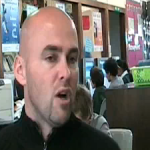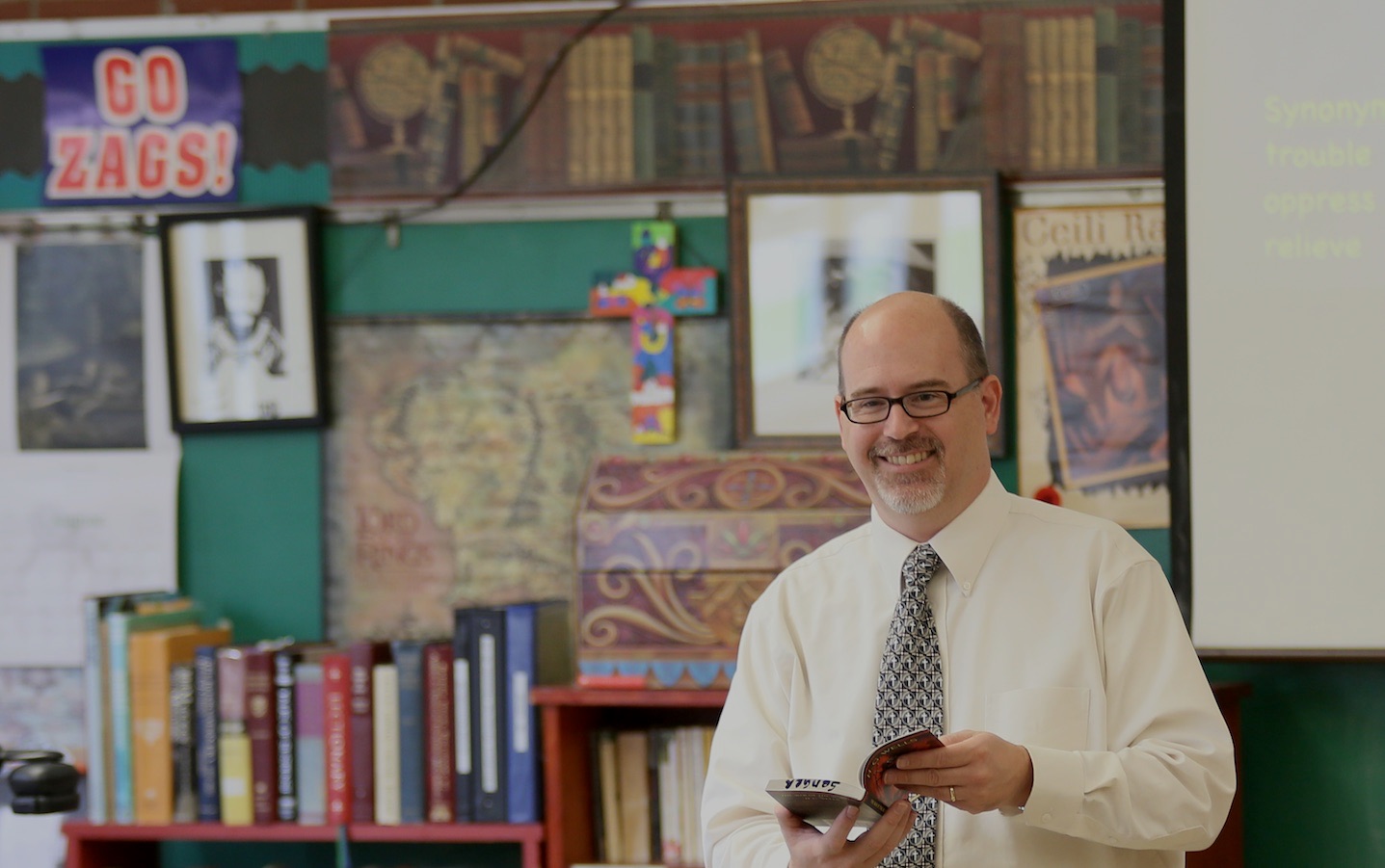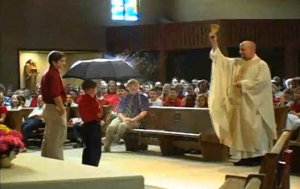
Inspiring Words for Catholic Educators
Why Should I Send My Child to a Catholic School?
Make a Difference – Teach in a Catholic School
 If you’re graduating with a teaching degree this Spring, I hope you consider applying at Catholic schools. As this video from the Archdiocese of Washington puts it, where else can you live out your vocation in an environment of faith, service and scholarship?
If you’re graduating with a teaching degree this Spring, I hope you consider applying at Catholic schools. As this video from the Archdiocese of Washington puts it, where else can you live out your vocation in an environment of faith, service and scholarship?
A Catholic Teacher Issues a Challenge
What is the biggest challenge you see facing Catholic education today? In the following interview excerpt, Alan Grant of Sts. Peter and Paul School in Lower Hutt, New Zealand, issues a call to active evangelization by Catholic schools:

I guess the biggest challenge that I’d like to pose to those involved in Catholic schools in particular is we need to work out where the Church can find young people and connect with young people. Traditionally I think we’ve been quite lucky that people have come to the Church and the Church has therefore had that opportunity to connect; now, I think it’s more a case of the Church needing to find these young people and find ways to connect with them. I think young people have that desire still, I don’t think that’s changed, and obviously what the Catholic Church is and has to offer is as rich now and as needed now as it has ever been; but I think there’s less opportunity for connection now, and the Church, I think, has to take the initiative and make those connections. We need to take the Church and take it to young people, encourage young people and give young people opportunities to engage with the Church.
How can we as Catholic educators respond to that challenge? Are we making connections with our students? Are we reaching them where they are at? For instance, how many of our schools have a Facebook page? A Twitter account? Are we communicating via text messaging? These new technologies define the world in which our students live and breath each day.
I disagree with Grant that there’s less opportunity for connection now, but I think he’s dead on about the Church needing to be more proactive with young people. What do you think?
Here’s the full interview:
The Educational Value of Failure
 Are your students afraid of failure?
Are your students afraid of failure?
- Do they worry about being made fun of for appearing too “religious”?
- Are they afraid to raise their hands in class out of fear of being wrong?
- Do they hesitate to come forward and tell you about how they or their friends are being mistreated?
- Is it safer for them to ignore their homework, rather than take the risk that their work might be judged less than perfect?
The following video might be a good way to begin a discussion about the educational value of failure and the importance of taking healthy risks.
Afterward, students could be given one of the following questions to either discuss in small groups, act out in a short skit, or write about:
- What are some risks Jesus took, and what was the result?
- Describe some moments that Jesus’ disciples failed.
- When did you experience failure that ended up being good for you?
- Talk about a time that you took a risk and it paid off.
- Comment on the following: “If you’ve never failed, you’ve never lived.”


